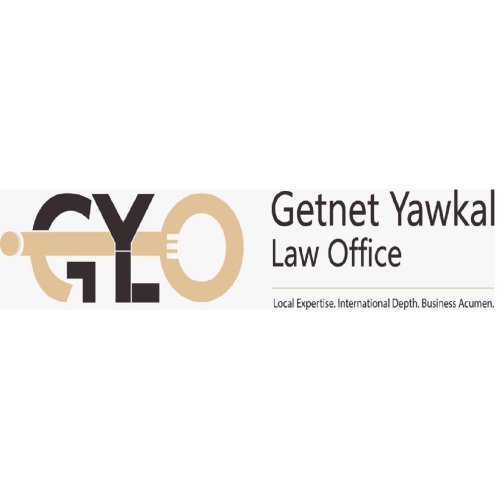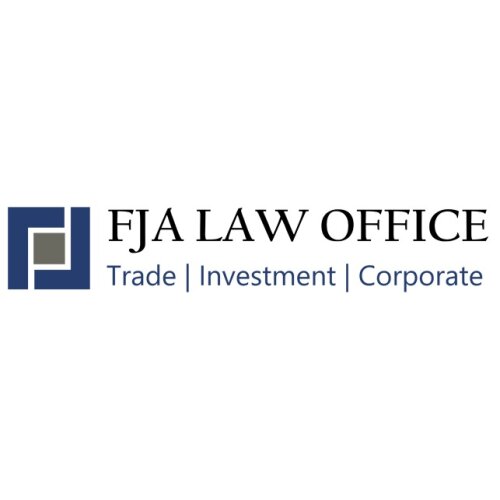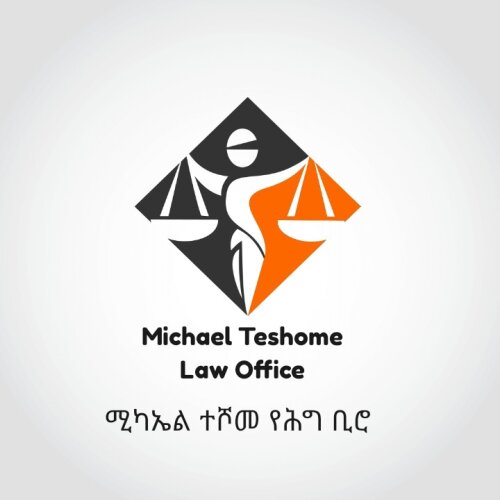Best Sanctions & Export Controls Lawyers in Ethiopia
Share your needs with us, get contacted by law firms.
Free. Takes 2 min.
Or refine your search by selecting a city:
List of the best lawyers in Ethiopia
About Sanctions & Export Controls Law in Ethiopia
Sanctions and export controls are legal measures that regulate the movement of goods, technologies, funds, and services in and out of a country. In Ethiopia, these laws are part of broader national security, foreign policy, and economic compliance strategies. The Ethiopian government uses sanctions and export controls to comply with international obligations, protect national interests, and prevent activities that may threaten peace and security, such as the proliferation of weapons, terrorism, money laundering, and the trade of restricted goods.
Sanctions often refer to restrictions imposed on trade or financial transactions with specific countries, entities, or individuals. Export controls deal specifically with limiting or regulating the export and sometimes import of certain items, especially those that can be used for military, dual-use (civilian and military), or prohibited purposes. Ethiopia has developed its framework to meet requirements set by international organizations like the United Nations and other strategic allies.
Why You May Need a Lawyer
Navigating sanctions and export controls can be complex because laws are frequently updated and offenses can carry severe consequences. Here are common situations where legal help may be crucial:
- Engaging in international trade and unsure about compliance with Ethiopian or international sanctions
- A business facing frozen funds, blocked shipments, or other trade restrictions
- Alleged involvement in exporting or importing suspicious or controlled goods
- Facing investigations or enforcement actions by Ethiopian authorities or foreign agencies
- Establishing internal compliance programs to avoid legal violations
- Unintentional breaches of sanctions or export control regulations
- Seeking to apply for export licenses or authorizations
- Confusion about the implications of new restrictions or changes in laws
A qualified lawyer can interpret the law, advocate on your behalf, negotiate with authorities, and help ensure business operations are compliant and protected.
Local Laws Overview
Sanctions and export controls in Ethiopia are shaped by a mix of domestic statutes and international commitments. Key points include:
- International Sanctions: Ethiopia is a member of the United Nations, so it enforces UN Security Council sanctions. These may target countries, organizations, or individuals associated with terrorism or prohibited weapons.
- Domestic Export Laws: Exports from Ethiopia are regulated under various laws, including customs and border control regulations. Certain products like agricultural commodities, minerals, technologies, and dual-use items require licenses or special documentation.
- Financial Controls: The National Bank of Ethiopia regulates cross-border financial flows and monitors compliance with rules preventing money laundering and financing of terrorism.
- Prohibited Goods: Laws ban the trade of items such as narcotics, endangered wildlife, culturally sensitive artifacts, and certain arms or defense-related equipment unless officially authorized.
- Import and Export Control Authority: This government body oversees issuance of relevant permits and monitors the lawful movement of controlled goods.
- Penalties: Breaching sanctions or export controls can result in the forfeiture of goods, heavy fines, business restrictions, or criminal prosecution.
Because these laws change with international developments, staying updated and compliant is essential, particularly for businesses engaged in global trade.
Frequently Asked Questions
What are export controls in Ethiopia?
Export controls in Ethiopia are laws and regulations that restrict or supervise the export of certain goods, technology, or services to protect national interests and fulfill international obligations.
Who enforces sanctions and export controls in Ethiopia?
Ethiopian enforcement agencies include customs authorities, the Import and Export Control Authority, and the National Bank of Ethiopia, among others. These bodies work together to ensure legal compliance.
Do Ethiopian businesses need licenses for all exports?
Not all exports require licenses, but some products, particularly those considered sensitive or dual-use (civilian and military applications), need special permits or documentation before export.
Can international sanctions impact Ethiopian businesses?
Yes. International sanctions, especially those from the United Nations or strategic partners, can affect who Ethiopian businesses can trade with and what goods or technologies they can export or import.
What are the consequences of violating export controls?
Penalties include heavy fines, confiscation of goods, suspension of business activities, or criminal charges, depending on the nature and severity of the offense.
How can a lawyer help with sanctions or export controls issues?
A lawyer can interpret the law, advise on compliance, help secure licenses, represent clients in disputes or investigations, and set up in-house compliance programs to prevent legal problems.
Are there restrictions on exporting financial services or cross-border payments?
Yes. The National Bank of Ethiopia regulates cross-border financial transactions, especially those involving countries or entities under sanctions or requiring anti-money laundering controls.
What happens if goods are stopped at the border for suspicion of sanctions violation?
Customs authority may seize the goods, conduct an investigation, and, if there is evidence of a violation, impose sanctions, fines, or criminal action. Immediate legal assistance is advisable.
How do I know which goods are subject to export controls in Ethiopia?
The Import and Export Control Authority and Customs issue lists of restricted and controlled items. Reviewing these lists and seeking legal counsel before exporting is recommended.
Is it possible to appeal a sanctions-related decision or penalty in Ethiopia?
Yes. Affected parties have the right to appeal administrative decisions, usually through designated government bodies or the court system. Legal representation is crucial for a successful appeal.
Additional Resources
If you need more information or official guidance, consider reaching out to the following:
- Import and Export Control Authority of Ethiopia - for queries on restricted items or permit applications
- National Bank of Ethiopia - for concerns related to financial sanctions and currency controls
- Ministry of Trade and Regional Integration - for business compliance and trade licensing
- Federal Attorney General's Office - for legal interpretations and enforcement actions
- Ethiopian Customs Commission - for border and customs enforcement
- Chambers of Commerce or trade associations - for business-specific advice and networking
Government websites, legal professionals, and reputable consultants can provide additional resources and updates about laws and best practices.
Next Steps
If you are dealing with an issue related to sanctions or export controls in Ethiopia or are unsure about your obligations, follow these steps:
- Identify the specific concern, such as a blocked transaction, potential violation, or licensing uncertainty
- Gather all relevant documentation, including contracts, correspondence, and shipment records
- Contact a qualified lawyer who specializes in sanctions and export controls
- Consult appropriate government agencies for official guidance or clarification
- Implement or update internal compliance policies in your business to reduce risk of future issues
Taking prompt legal advice and cooperating with relevant authorities can significantly improve your chances of resolving the matter effectively and avoiding potential penalties.
Lawzana helps you find the best lawyers and law firms in Ethiopia through a curated and pre-screened list of qualified legal professionals. Our platform offers rankings and detailed profiles of attorneys and law firms, allowing you to compare based on practice areas, including Sanctions & Export Controls, experience, and client feedback.
Each profile includes a description of the firm's areas of practice, client reviews, team members and partners, year of establishment, spoken languages, office locations, contact information, social media presence, and any published articles or resources. Most firms on our platform speak English and are experienced in both local and international legal matters.
Get a quote from top-rated law firms in Ethiopia — quickly, securely, and without unnecessary hassle.
Disclaimer:
The information provided on this page is for general informational purposes only and does not constitute legal advice. While we strive to ensure the accuracy and relevance of the content, legal information may change over time, and interpretations of the law can vary. You should always consult with a qualified legal professional for advice specific to your situation.
We disclaim all liability for actions taken or not taken based on the content of this page. If you believe any information is incorrect or outdated, please contact us, and we will review and update it where appropriate.
Browse sanctions & export controls law firms by city in Ethiopia
Refine your search by selecting a city.

















